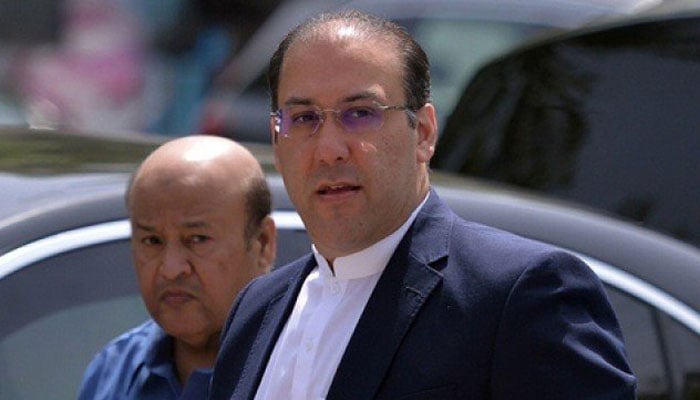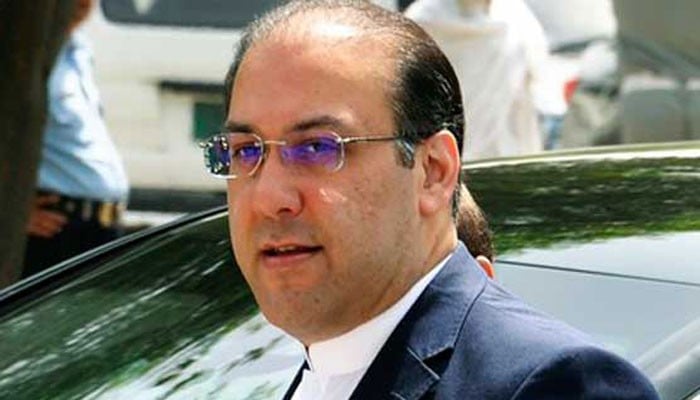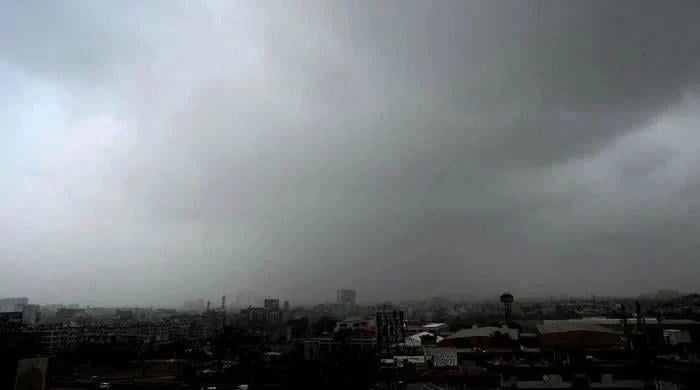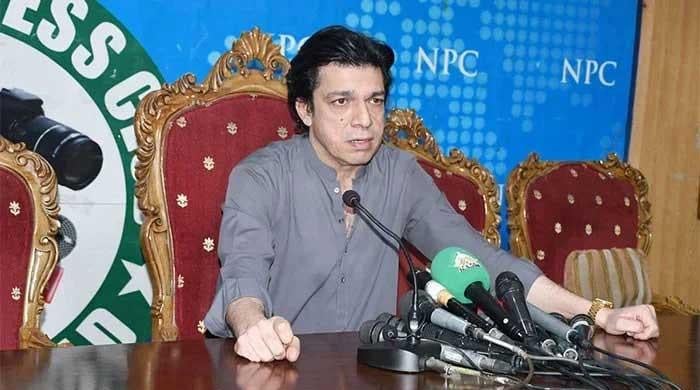NAB laws don’t apply to me and my brother, says Hasan Nawaz
Three British Pakistani experts say the NAB warrants and summons have no value and are not applicable to Hasan and Hussain
October 10, 2017

LONDON: Hasan Nawaz, son of former prime minister Nawaz Sharif, said that the summons, warrants or proceedings by the National Accountability Bureau (NAB) don’t apply to him and his brother Hussain Nawaz as both of them hold British nationalities.
An accountability court ordered the initiation of the process of declaring Hasan Nawaz and Hussain Nawaz proclaimed offenders for not appearing before the court on Tuesday.
Both the brothers have said that they have not been given the summons yet. It was announced that the process of declaring Hasan and Hussain proclaimed offenders will involve publication of notices in the newspapers directing the accused to appear in court and failure to do so will result in seizure of property and issuance of further warrants.
Hasan Nawaz, a respondent in the references filed by NAB against the Sharif family, told Geo News that the court cannot declare him a proclaimed offender.
“I am not a proclaimed offender and the NAB cannot make someone a proclaimed offender. In the absence of a crime, they are trying to catch a black cat in the dark,” he told.
Hasan said he has not received any NAB summons at his residential address in London where he has been living for the last 24 years. The former prime minister’s son said he is a British citizen and has never received the said summons according to British laws.
Hasan termed NAB’s actions an exercise that is nothing more than political victimisation and an effort to make “news headlines”.
Hasan said he has not committed any crime which could him make him an absconder and has never fled from the country.
Three British Pakistani legal experts told this scribe that the NAB arrest warrants and summons have no value and are not applicable to Hasan and Hussain, stating that Pakistani authorities must explain some specific crime they have committed.
Barrister Iftikhar Ahmad, who once served as a major in the Pakistan Army, said that the NAB summons and warrants against Hasan and Hussain served out of jurisdiction are mere information and have no enforcement force while they are in the UK. “They are saying this because this is the correct legal position. At the next stage, the Pakistani court can request the Interpol, with the help from the Interior Ministry, to issue warrants for both brothers and the Inteprol will issue warrants but that will not go anywhere because the UK doesn’t extradite its citizens in the absence of an extradition treaty and cases involving political nature. Extradition has to go through a lengthy court process involving cases of terrorism and so on but that could take years and extradition is possible only through a court order,” he said.
Barrister Rashad Aslam said that any court summons, warrants or proceedings are simply not applicable to Hasan and Hussain while they are in the UK. “There is no treaty to enforce these warrants between the two countries. Pakistani authorities know it well but they are doing so for news media and to get themselves saved from the wrath of Supreme Court, which is monitoring these cases.”
Aslam opined that the UK authorities will know in no time this is a highly politically motivated witch hunt and they will stay away and will not extend any cooperation whatsoever.
Dr Akbar Malik said that Pakistani authorities are wasting their time and playing to the media gallery. He said that if the summons is received by Hasan Nawaz and signed it means nothing legally and similarly anyone living in Pakistan will have the same stance on receiving summons from a UK court.
He said the only option is to seek extradition of Nawaz Sharif’s sons and that will never happen as UK does not send its citizens to countries where people can be sentenced to death.
The accountability court is hearing a total of three corruption cases against the Sharif family filed by NAB in light of the Supreme Court's judgment in the Panama Papers case.











